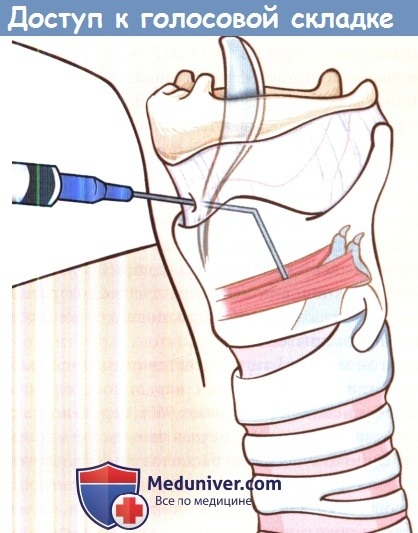Vocal cord augmentation in injection laryngoplasty caused both objective and subjective improvement in the voice of patients with Parkinson's disease (PD).
Although otolaryngologists have safely injected collagen and gel into the vocal folds for many years to treat atrophy for many reasons, this method has not been widely used in PD.
At the International Congress of Parkinson's Disease and Movement Disorders in 2018, convincing data were presented on the effectiveness of injection laryngoplasty in the case of aphonia in patients with PD, read the article estet-portal.com for more details.
The problem of aphonia in Parkinson's disease
Speech and voice disorders affect up to 90% of patients with PD, with hypophonia and aphonia being the main speech disorders and vocal cord atrophy being the main cause.
Vocal fold atrophy due to disease as well as due to normal aging causes glottic insufficiency whereby the vocal folds cannot close fully; the air escapes during the vocalization and the voice becomes softer and quieter.
Follow us on Instagram
Olga Klepitskaya, MD, Lecturer at the University of Colorado Anschutz Medical Campus, Aurora, worked on this problem.
Study of the effectiveness of injection laryngoplasty in case of aphonia

Once, according to Klepitskaya, a patient told her that the otolaryngologist "injected something" in the throat, "and I began to speak better."
Therefore, in collaboration with otolaryngologist Matthew Clary, she performed a retrospective and prospective observational study of vocal fold augmentation with carboxymethyl cellulose gel injection using objective and subjective voice and speech assessment options in patients with clinically significant speech impairment and glottic insufficiency secondary to in relation to idiopathic PD.
Risk of autoimmune disease after breast implants
Results of a study on the effectiveness of injection laryngoplasty
The patients had a mean age of 72.9 ± 5.87 years with an average duration of PD of 13.0 ± 10.59 years, 25 out of 29 were men.
A statistically significant improvement in general condition and speech loudness was assessed using the CAPE-V scale (Consensus Auditory-Perceptual Evaluation of Voice) 1 month after the injection.
The anatomy of beauty: why patients choose anatomical implants for breast augmentation
24 out of 27 patients (89%) reported a positive effect of treatment 1 month after the injection.
Vocal cord closure time increased by 16.43% at 1 month post-injection compared to pre-treatment, and increased by 10.82% from baseline (P<0.001 for both).
Practical application of injection laryngoplasty in case of aphonia
After 3 months, the effect of laryngoplasty will wear off. Therefore, the otolaryngologist injects calcium hydroxyapatite paste, the effect of which, according to Klepitskaya, lasts up to 18 months.
Sometimes doctors don't take seriously some of the changes that PD patients or just aging suffer from. Injection laryngoplasty may affect the functioning and quality of life of elderly patients.
You may be interested in the article on our website estet-portal.com in the section "Plastic surgery" 3 of the rarest plastic surgery procedures
Adapted from Medscape







Add a comment